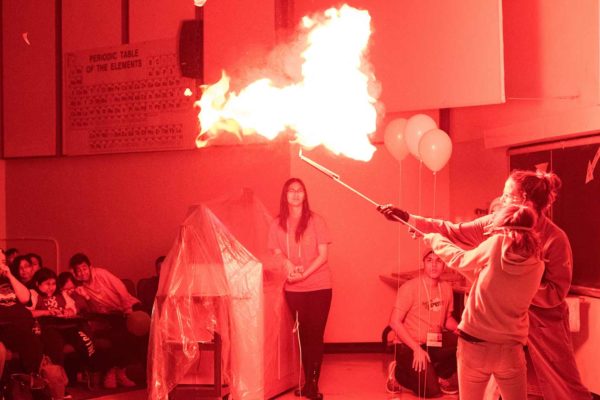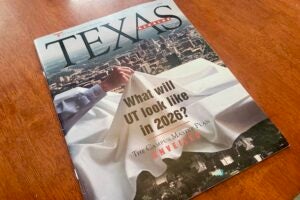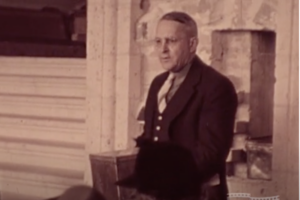Nearly 50 years ago, my mother urgently called me in from the evening game of hide and seek with my friends in our quiet neighborhood cul-de-sac. I ran inside and watched our black-and-white TV, spellbound as the sound of Neil Armstrong’s voice came through loud and clear.
“I’m at the foot of the ladder. The LM footpads are only depressed in the surface about 1 or 2 inches, although the surface appears to be very, very fine grained, as you get close to it. It’s almost like a powder. Down there, it’s very fine. I’m going to step off the LM now. THAT’S ONE SMALL STEP FOR (A) MAN, ONE GIANT LEAP FOR MANKIND.”
I have a vivid memory of American astronauts planting our flag and skipping and hopping around the moon’s surface. Probably like most 9-year-olds watching the live broadcast, I was awestruck. I had to run back outside and stare up at the moon in absolute, astonished wonder.
The limits of my own imagination and genuine human accomplishment merged that night. The impossible became possible. I was changed forever, a defining moment for myself as well as many in my generation. It is fair to say that my future career as a scientist and professor was ignited by Neil Armstrong’s profound words.
Every generation of students needs a defining moment, one in which their imaginations are challenged to expand beyond current limits.
Most of us can’t go to the moon (yet), but there are still places you can go to push beyond the known to make the impossible possible. Our city is blessed to be home to one of the world’s greatest universities. Every day, at places like The University of Texas at Austin, scholars and students are exploring ideas at the outer limits of human imagination in every field you have ever heard of and many that you probably never knew existed.
It’s incredible to think of all the advances Texas universities have shared with the world during the 50 years since NASA put Americans on the surface of the moon. A team of researchers led by Livia Eberlin, a recent MacArthur “Genius” Fellowship winner, invented a device for detecting cancer cells called the MasSpec Pen. It could soon enable doctors to instantaneously detect the often-missed outer edges of cancer tumors so they can remove absolutely all cancerous tissue while they’re in the middle of surgery.
Another team of UT researchers, led by Julia Clarke, has forever changed the way we picture and teach about dinosaurs — they discovered that many of them actually sported flashy rainbow-colored feathers.
I attribute one of my own contributions made in a research lab here at UT to that breathtaking moment 50 years ago. Once ignited, my journey of discovery led me to being part of a team of other faculty members and students who developed an FDA-approved cure for late-stage inhalation anthrax, providing a way to safeguard our country against possible future attacks.
That’s why one weekend a year, we open the doors to UT, where Texans of all ages can imagine and discover and participate in the sometimes small but often powerful results of what we can achieve. Texas needs research universities where we can follow our questions to those all-important defining moments. And research universities need Texans, young and old, business people and artists and inventors, to be involved and share that basic desire to make the world a better place.
Explore UT is the biggest open house in Texas. Witness the wonders of chemistry, try your hand at robotic surgery, create your own piece of art, rehearse a scene from Shakespeare, march with the band, or visit one of several space-themed activities like building and launching your own rocket. Or better yet, come explore something that you never knew existed and plant your own flag of discovery.
Fifty years ago, many of us were inspired by three daring astronauts to see our world from a new vantage with limitless horizons. It’s time more Texans take that first small step onto campus and, perhaps, their first giant leap toward redefining what is possible.
Brent Iverson is the dean of the School of Undergraduate Studies at The University of Texas at Austin and chair of the March 2 event, Explore UT.
A version of this op-ed appeared in the Austin American Statesman.




